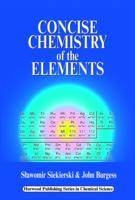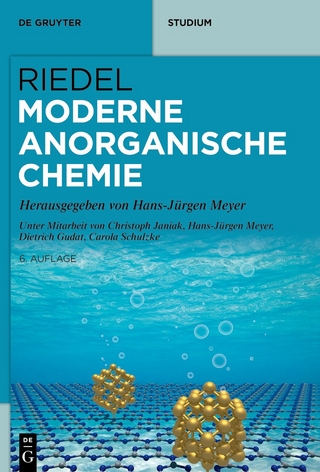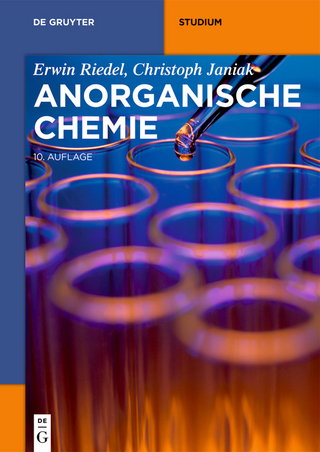
Concise Chemistry of the Elements
Seiten
2002
Horwood Publishing Ltd (Verlag)
978-1-898563-71-6 (ISBN)
Horwood Publishing Ltd (Verlag)
978-1-898563-71-6 (ISBN)
Two experienced chemists encapsulate their knowledge and teaching experience in this succinct text, containing 63 useful diagrams, suitable for both undergraduate and post-graduate courses.
The Periodic Table of the Elements is the most widely used basis for systematic discussion of inorganic chemistry. Two experienced chemists encapsulate their knowledge and teaching experience in this succinct text, suitable for both undergraduate and post-graduate courses. Part one explains how fundamental properties of atoms determine the chemical properties of elements, and how and why these properties change in the Periodic Table. The main properties discussed include radii and energies, ionization potentials, and electron affinities. Particular emphasis is placed on unique properties of the first s, p, and d shells, on the effects of filled 3d and 4d shells on the properties of p and d elements, and on relativistic effects in the heavy elements. The overall treatment will clarify many complex concepts. Part two presents an outline of inorganic chemistry within the framework of the Periodic Table, detailing the application and relevance of the principles set out in part one.
The Periodic Table of the Elements is the most widely used basis for systematic discussion of inorganic chemistry. Two experienced chemists encapsulate their knowledge and teaching experience in this succinct text, suitable for both undergraduate and post-graduate courses. Part one explains how fundamental properties of atoms determine the chemical properties of elements, and how and why these properties change in the Periodic Table. The main properties discussed include radii and energies, ionization potentials, and electron affinities. Particular emphasis is placed on unique properties of the first s, p, and d shells, on the effects of filled 3d and 4d shells on the properties of p and d elements, and on relativistic effects in the heavy elements. The overall treatment will clarify many complex concepts. Part two presents an outline of inorganic chemistry within the framework of the Periodic Table, detailing the application and relevance of the principles set out in part one.
Slawomir C. Siekierski, Institute of Chemistry and Nuclear Technology, Poland. John Burgess, University of Leicester, UK
Part 1 General properties: Many-electron atoms: Shell filling in many-electron atoms; Radii and their changes in the main-group elements; Orbital energies and related properties; Oxidation states and their stability; Catenation and formation of condensed phases. Part 2 Chemical properties: Hydrogen and the alkali metals: The alkaline-earth metals; Groups 13 and 3; Group 14; Group 15; Group 16; Group 17 - The halogens; Group 18 - The Noble gases; Transition elements; Group 11 - The coinage metals; Group 12; Lanthanides and actinides; The transactinide elements; The structure of the periodic table.
| Erscheint lt. Verlag | 1.10.2002 |
|---|---|
| Sprache | englisch |
| Maße | 156 x 234 mm |
| Gewicht | 300 g |
| Themenwelt | Naturwissenschaften ► Chemie ► Anorganische Chemie |
| ISBN-10 | 1-898563-71-3 / 1898563713 |
| ISBN-13 | 978-1-898563-71-6 / 9781898563716 |
| Zustand | Neuware |
| Haben Sie eine Frage zum Produkt? |
Mehr entdecken
aus dem Bereich
aus dem Bereich
Buch | Hardcover (2024)
Springer Spektrum (Verlag)
64,99 €


